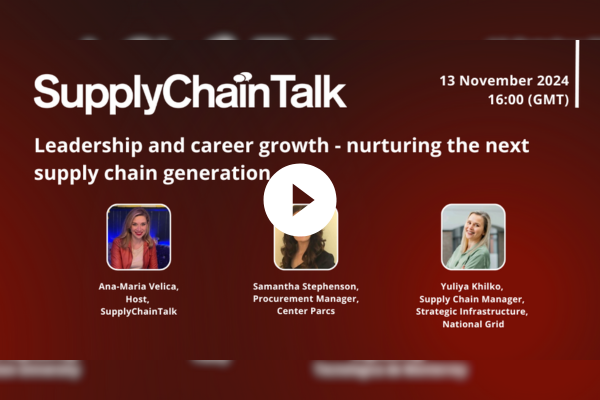Can B Corps be better?

Paul Hargreaves at Cotswold Fayre explains why he is worried for the future of the Benefit Corporations model
The Benefit Corporations model sees businesses balance purpose and profit; B Corps are committed to helping solve social and environmental problems and included in their ranks are the likes of Patagonia, the Jamie Oliver Group, and Ben & Jerry’s. A rigorous assessment process evaluates a company’s operations and its impact on workers, customers, the environment, and communities.
Basically, the aim is for business to be in the hands of the good guys. But I have concerns for the future of the movement.
Start of a journey, not a destination
There is a danger that companies can treat the certification similarly to an ISO standard, maybe tweak a few things, but largely carry on as before. Becoming a B Corp cannot just be a box-ticking exercise and doing just enough to creep over a line; it must be the start of a journey that will foundationally challenge everything we do and how we do it.
The B Corp movement must mean more than some tweaking around the edges; we need significantly transformative and regenerative businesses, making more difference than we are currently doing.
Excited by my company’s first few years of a B Corp and wanting to encourage more businesses to become a force for good in the world, I wrote my first book, Forces for Good, which was published in 2019. However, in the writing of that book, I came to the strong realisation that if we are going to change the world for better, socially, and environmentally, then we also need to transform ourselves.
It is not just about a new mindset, but about tapping into our other dimensions. We must become people and leaders with more compassion, more heart, and more soul.
Most of us in the Global North are good at mind-level actions and strategy but less good at operating on the level of soul and heart. Undoubtedly, change starts with the mind and setting new intentions for our businesses, but real change involves deepening into more love and spirituality, whatever that word means for you. It also means connecting with our inner side, nature and others in ways that we haven’t experienced before.
All this is only getting back to the way our ancestors were, but we have become so dominated by our minds in The West, that we are babies in all the other ways of being.
Operating from the heart and soul
I started to discover these ‘other ways of knowing’ a few years ago and my desire to see leaders inspiring on another level was expressed in my book, The Fourth Bottom Line. The first three bottom lines being the well-known motif of people, planet and profit; the fourth being the personal change required to transform better businesses to regenerative ones.
However, we are not going to achieve the different results many of us deeply desire by using the same thinking that resulted in the mess that business has been responsible for in the world. We need a different way, a more holistic approach and one where the mind is an equal partner with our hearts, souls and somatic parts.
How do we bring this more heartfelt and soulful vibe into our businesses? Here are a few suggestions.
Engage and learn from nature
Most of the answers are out there. Have meetings in the outdoors, encourage your people to get outside and set an example yourself. Immerse yourself in nature and nature will bring the answers and the change you need to see.
Encourage emotions within your business
That means leaders being vulnerable and expressing their own emotions too. It means giving space for others to be themselves. Yes, sometimes, it may feel like stuff isn’t getting done quickly enough and it will certainly be messier, but there will be a depth to what is happening that will always be more transformative for the future.
Move away from constant ‘productivity’
If you are lucky enough to have a quiet area within your building, then encourage people to have ‘time outs’. We have a short time of silence at the start of our meetings and take a few deep breaths which helps the brain be less dominant and the other parts of us come to the fore. By doing slightly less, we achieve more.
Put people first even when it hurts
Learn to lead with abundance and generosity. If we really believed that putting people and planet first would lead to greater profits, we would sometimes make different decisions. That’s why I never liked the balancing of people, planet and profit, as when the pressure comes, the numbers always trump the other two. We have a rule within our business that in meetings, whatever type, we never talk about numbers first. If business leaders do that, then what do you think their people think is most important?
Match people’s purpose with company purpose
There’s a lot of talk about purpose these days, but that is often at a company level. What about helping the individuals within our company to discover their own purpose in life? Hopefully there is a connection between the two, but if not, it sometimes means they may leave. But this can actually be good for not just them, but for the business too.
Yes, the B Corp framework is a fantastic tool for helping us to become a better business, but we need more than that. In today’s broken world full of injustice on a rapidly degrading planet, we need leaders and businesses that are connecting in compassion and love to nature and people. We need the people within our businesses to engage at a heart and soul level as well as at a mind level. We need our workplaces to be those where there is depth and creative life.
It is different and not always easy, but we can’t carry on as we are, can we? It’s not working.
Paul Hargreaves is a speaker, author and B Corp Ambassador. He is one of the leading voices in the UK encouraging and inspiring businesses to make a positive impact on the world, strongly believing that businesses should be Forces for Good. Paul is CEO of Cotswold Fayre, a large speciality food and drink wholesale business
Main image courtesy of iStockPhoto.com and howtogoto

Business Reporter Team
Most Viewed
Winston House, 3rd Floor, Units 306-309, 2-4 Dollis Park, London, N3 1HF
23-29 Hendon Lane, London, N3 1RT
020 8349 4363
© 2024, Lyonsdown Limited. Business Reporter® is a registered trademark of Lyonsdown Ltd. VAT registration number: 830519543





